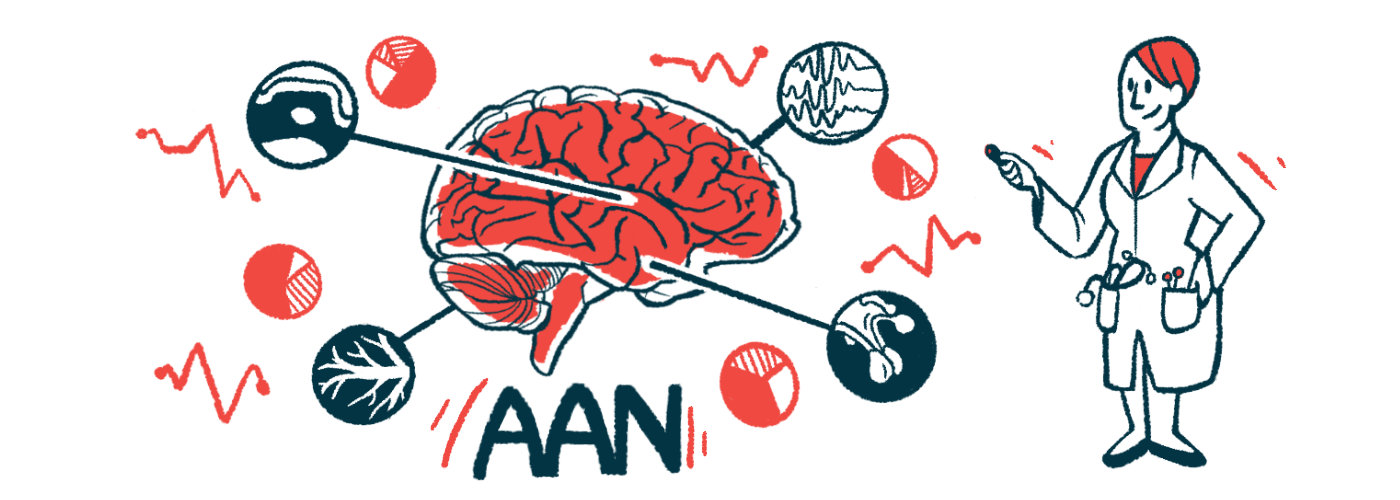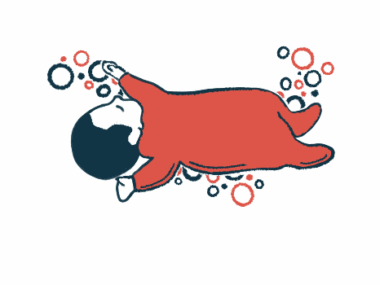AAN 2023: Epidiolex benefits in Dravet seen for children and adults
Fewer seizures, better cognitive skills reported in caregiver survey
Written by |

Treatment with Epidiolex led to a range of improvements — from fewer seizures to improved cognition and better social skills — for both children and adults with Dravet syndrome and Lennox-Gastaut syndrome (LGS), according to new analyses of a U.S. caregiver survey.
The results, presented in a pair of posters at last week’s American Academy of Neurology (AAN) 2023 annual meeting, showed gains in both seizure and non-seizure domains with Epidiolex treatment, regardless of a patient’s age.
Most caregivers reported reductions in seizure frequency and severity, as well as improvements in cognitive and social skills among both children and adults. Yet, children with either Dravet or Lennox-Gastaut syndrome saw numerically greater gains in terms of communication, physical function, sleep, and daily activities with Epidiolex than did adults.
According to the researchers, the findings overall highlight “the importance of early diagnosis and intervention in lowering the impact on patients’ physical, emotional, and mental wellbeing.”
Survey questioned real-world impact of Epidiolex in Dravet syndrome
Epidiolex is an oral solution of highly purified cannabidiol, the main non-psychoactive component of the cannabis plant. Cannabidiol can mimic natural compounds in the body that act on brain receptors that appear to regulate seizure activity.
The therapy is approved in the U.S., across Europe — where it’s sold as Epidyolex — and in other regions to prevent seizures in children and adults with both Dravet syndrome and LGS, two treatment-resistant forms of severe childhood-onset epilepsy.
The BECOME study — in full, Behavior, COgnition, and More with Epidiolex — was an online survey involving 498 U.S.-based caregivers, 97% of whom were patients’ parents. The respondents reported the impact of real-world Epidiolex use for three months or more among their charges with LGS and Dravet syndrome.
The caregivers were asked to compare seizure and non-seizure symptoms in the month before the survey, when patients were on the cannabidiol therapy, versus the pre-Epidiolex period. This was done by answering a range of multiple choice and rank choice questions.
The survey’s primary results showed a substantial proportion of caregivers reported improvements in seizure and non-seizure outcomes among both Dravet and LGS patients. The age range of patients was 1 to 72 years.
Now, researchers have compared the outcomes between the 315 pediatric patients and the 183 adults from the BECOME study. The children’s mean age was 9, while the average age of the adults was 28. A little more than half of the patients in both age groups were males.
The pediatric patients had been using Epidiolex for an average of 1.9 years, at a median dose of 16 mg/kg daily. The adult patients had been using the treatment for 2.2 years on average, at a median dose of 11 mg/kg per day.
Patients in both age groups were using a median of four additional anti-seizure medications, with clobazam (brand names, Onfi and Sympazan) as the most common.
The first poster, “Seizure Outcomes With Cannabidiol (CBD) in Pediatric Versus Adult Patients With Lennox-Gastaut Syndrome (LGS) and Dravet Syndrome: Subgroup Analysis of BECOME, a Caregiver Survey,” explored seizure-related outcomes.
The results showed that 84% of caregivers in each age group reported a reduction in seizure frequency for at least one seizure type.
At least two-thirds of caregivers of pediatric and adult patients reported drops in the frequency of convulsive (72% each), drop (71% each), and nonconvulsive/nondrop seizures (66% and 69%). Reductions in night-time seizures were reported in 61% of children and 63% of adults.
About three-quarters of caregivers in each age group (75%-77%) indicated a reduction in seizure severity. Drops in rescue medication usage, emergency room visits, hospitalizations, and seizure-related injuries were reported in about half of patients in each age group.
A worsening in seizure frequency or severity was reported in no more than 10% of all patients.
More than two-thirds of caregivers from each group (65%-70%) reported more seizure-free days per week with Epidiolex for at least one seizure type. Moreover, 18% of pediatric patients and 15% of adult patients were said to be entirely free from seizures in the past month.
Overall, according to researchers, “a substantial proportion of caregivers” reported better seizure-related outcomes with the cannabidiol treatment.
Patients of all ages included in Dravet syndrome survey of Epidiolex
The second poster, “Nonseizure Outcomes With Cannabidiol (CBD) in Pediatric Versus Adult Patients With Lennox-Gastaut Syndrome (LGS) and Dravet Syndrome (DS): Subgroup Analysis of BECOME, a Caregiver Survey,” concerned non-seizure outcomes in the two age groups.
Data demonstrated that any improvement in alertness, cognition, or executive function — a set of cognitive skills that include working memory, flexible thinking, and self-control — was reported for 87% of pediatric patients and 81% of adults.
The most frequently reported improvement in children was the ability to learn new things (76%), whereas alertness was most often improved in the older age group (70%).
Moreover, 82% of children and 80% of adults were reported to have experienced some improvement in emotional and social functioning with Epidiolex treatment.
A substantial proportion of caregivers … reported improvements in outcomes beyond seizure control since initiating [Epidiolex] treatment.
Communication skills were reportedly improved for 85% of nonverbal children and 81% of verbal children, compared with 68% of nonverbal adults and 63% of verbal adults. For all nonverbal patients, the most frequently reported improvement was in the ability to look up or smile upon mention of their name.
Improvements in sleep, physical function, and daily activities also were reported for at least one-third of the patients, with a numerically higher proportion of children seeing gains relative to adults (53%-56% vs. 33%-48%).
These findings highlight the benefits of Epidiolex beyond seizure control for both Dravet syndrome and LGS patients, regardless of age, according to researchers.
“A substantial proportion of caregivers … reported improvements in outcomes beyond seizure control since initiating [Epidiolex] treatment,” they wrote, noting these results were “regardless of age.”
Nearly all caregivers (93%) said they planned to continue using Epidiolex for the patient for whom they cared, with the most frequently reported reasons being seizure-related reductions (88%-83%) and non-seizure-related improvements (73%-79%).







